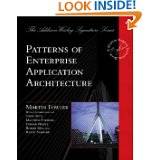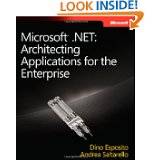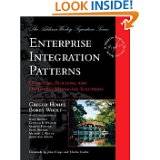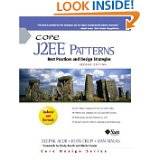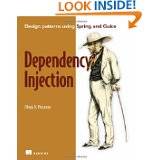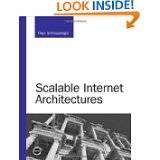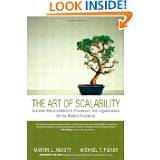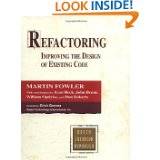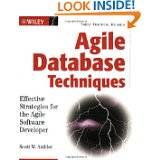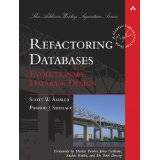Design pattern books:
1. C# 3.0 Design Patterns
2. Design Patterns: Elements of Reusable Object-Oriented Software:
3. Patterns of Enterprise Application Architecture
4. Microsoft .NET: Architecting Applications for the Enterprise (Pro-Developer)
5. Microsoft Application Architecture Guide (Patterns & Practices) (This one can be downloaded for free as PDF from msdn)
6. Enterprise Integration Patterns: Designing, Building, and Deploying Messaging Solutions (This book is really good for specializing in middle tier aka services, queues etc)
7. Core J2EE Patterns: Best Practices and Design Strategies (2nd Edition)
Domain Model Pattern (These books are dealing only with the DM pattern)
1. Applying Domain-Driven Design and Patterns: With Examples in C# and .NET
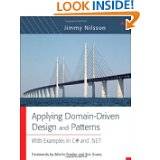 It has examples in C# 2.0 but the concept (DM) is still valid nowadays.
It has examples in C# 2.0 but the concept (DM) is still valid nowadays.
2. Domain-Driven Design: Tackling Complexity in the Heart of Software
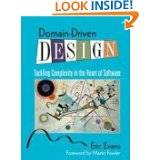 This is a classic although the book is a bit dense, see the examples. The book is narrated as a story when the author was developing an application for embedded electronic circuits.
This is a classic although the book is a bit dense, see the examples. The book is narrated as a story when the author was developing an application for embedded electronic circuits.
Inversion of Control Pattern/IoC:
Internet Architectures (Load balancing, redundancy, ways to scale out)
4. Scalable Internet Architectures
These two are “must have”references, specifically the UML one:
6. UML Distilled: A Brief Guide to the Standard Object Modeling Language (3rd Edition)
7. Refactoring: Improving the Design of Existing Code
And to translate from the Object Oriented World, Class Diagrams and UML notation to the Entity Relational World with Entity Relationship Diagrams:
9. Refactoring Databases: Evolutionary Database Design (Addison-Wesley Signature Series (Fowler))
Thanks to Srinivasa Tammana for asking me to put this list together. I own other titles but they are more detailed to a particular database technology or programming language and the books here are long time favorites.
Cheers
Lizet



